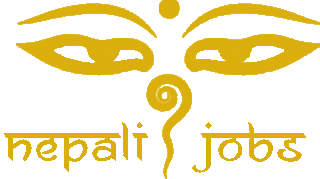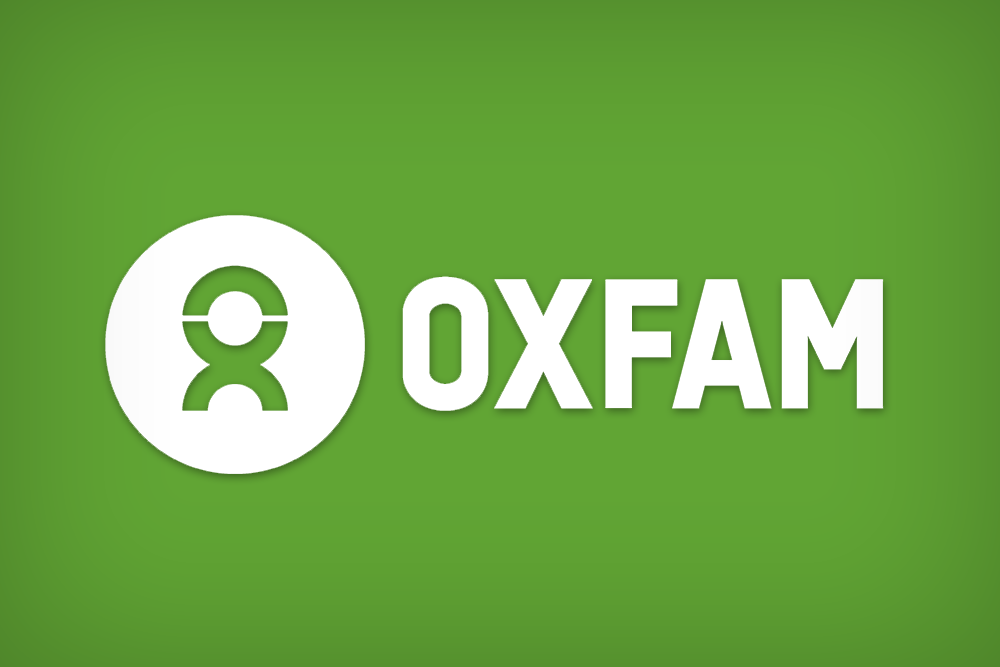Job Overview
- Category: Consulting & Professional Services
- Position Type:Contract
- Experience:Please check vacancy details.
- Openings:1
- Education:Please check vacancy details
- City: Lalitpur
Detailed Job Description / Requirements
Terms of Reference (ToR)
For Research on Rice Value Chain
Background
Oxfam has been active in Nepal for over 30 years, and currently employs over 100 national and international staff led from its country office in Kathmandu, which manages both the Humanitarian and Sustainable Development Programme. Oxfam is working towards a vision for Nepal of a just society without poverty, in which all women and men live a life of dignity, enjoy their rights and assume their responsibilities as active citizens of Nepal. For the Sustainable Development Programme, Oxfam continues to build upon its niche and deliver on three inter-connected programme – Gender Justice, Food and Economic Justice and Disaster Risk Reduction and Climate Change Adaptation.
Oxfam’s Sustainable Development Programme is currently working in 18 Districts, 90 VDCs and 7 municipalities reaching out to 368,582 people as direct beneficiaries, Food and Economic Justice (FEJ) is one of the three programme pillars of Oxfam’s Sustainable Development Programme. The FEJ programme includes interventions related to Food Security, Sustainable Livelihoods, Women Economic Empowerment, Enterprise Development, Land Rights and Safer Migration. The goal of FEJ is to improve food security and livelihoods status of poor, socially excluded women and men.
Oxfam GB has been working in different kinds of value chain since some years, among them rice value chain has been significant one. Over the years of implementation of rice enterprise different issues were uncovered which were marginalising the access of small holders over the value chain share.
Rice, being the major staple food in Nepal, contributes to 37% of the country’s domestic product and 50% of total agricultural production. As per the data provided by IRRI, in 2011 and 2012, total of 5 million tons’ rice was grown on 1.5 million[i] hectares, with an average yield of 3.3 tons per hectare. According to Ricepedia, Nepal imported 325.4 thousand tons of rice on 2013, whereas only 0.17 thousand tons were exported to India.[ii] Following the data provided by IRRI, total domestic consumption comes around 5198 metric tons. This doesn’t include the data of rice destroyed by floods in Terai area. Hence, despite holding half of the agricultural production, Nepal imports huge amount of rice from India.
According to a statistic provided by Nepal Rastra Bank, Nepal records total rice import equivalent to 13.3 billion Rs in 2016.[iii] The import trend has been increasing significantly in last few years. There are other foods beside rice which is being imported from India on daily basis.
There are countable researches done in rice sector in Nepal which largely covers the statistical aspects focusing less on socio-economic and political aspects of rice production.
Recently government declared 20 districts of Terai as pocket area for rice production. Subsequently, they will announce different packages to increase rice production in those areas. But with these kind of policies and packages of government, there have been less chances of reaching it directly to small farmers. Several innovative plans targeted directly to farmers remained in papers as there was no effective implementation approaches for those plans.
Albeit, there were several approaches and rice production being major debatable issues in Nepal, small farmers are still facing difficulties in getting their right share in rice value chain.
Major factors behind these issues are:
- Ineffective implementation and inadequate government plans and policies in rice sector
- Free and informal trading of rice from India
- Lack of provision of minimum support price (MSP) for farmers by government
- Lack of different kinds of inputs, such as: land, financial services, agricultural extension services etc
Objectives of the Assignment
While there has been some research conducted in the rice sector of Nepal, there are number of key gaps in knowledge and understanding. This research aims to fill some of those gaps.
- To find out the issues and challenges faced by small holder’s rice farmers in Nepal and to analyse their role.
- To analyse the government plans on rice development program and what is favourable for small holder rice farmers in that policy.
- To find out the impacts of informal trading of rice from/to India among small holder rice farmers.
- To analyse the role of private sectors in strengthening rice value chain in Nepal.
Scope of Services and Tasks and Activities to be completed
The study will be based on 3 different case studies which fulfil the objectives stated above. It will collect both primary and secondary data. Information from rice farmers, local vendors, rice traders, national federations will be collected from the interview. The case studies will focus on the status of rice farmers specially women farmers in Nepal, linking their relationships with local vendors, rice traders and national federations as well. Concerned line agencies will be interviewed to map out the government provisions on rice sector.
The three case studies will cover the main areas of interest to Oxfam as described above. For each type of information, different methodologies will be required.
- Literature review and Desk review:
Literature review of existing information on the rice sector, highlighting the gaps in current knowledge and what Oxfam’s research is adding.
Review of existing government policies, plans and regulations
Analysis of available trade data (collected from border custom offices, border side traders etc.)
Gathering and systemization of existing data on imports/exports to build up a clear picture of official trade across the border. Analysis of existing data to find out gross national production and domestic need of rice.
- Key Informant Interview:
Farmers in the district to understand their experience, and value they can retain,
Government officials, federations and private sector actors
Local vendors, traders and national federations as well as government border officials as appropriate to gather information about informal trade.
- Stakeholder consultation workshop:
A half day stakeholder consultation will be organized in presence of concerned organizations, private sectors, CSOs, development agencies working in value chains sector. Detail plan of consultation workshop will be designed with the help of consultant.
Expected Deliverables
- Detail workplan
- Final Research questions in consultation with Oxfam team
- Final national narrative on rice value chain inequalities will be developed which must cover following topics;
- Background
- National scenario (rice production statistics and data)
- Import/ export scenario
- Government approaches
- Role of private sector
- Case studies
- Conclusions
- Recommendation (key policy ask for advocacy and campaigning)
- Presentation and facilitation of stakeholder consultation workshop
Reporting Line Manager
The consultant shall work with the Food and Economic Justice team under the direct supervision of GROW Coordinator, with guidance from the Programme Manager. In addition, the consultant may be expected to liaise with Oxford based Oxfam GB colleague.
Duration: Start date and completion date
The anticipated commitment is 50 days starting from October 26, 2017 – December 22, 2017 based on the provisional timeline below:
|
Date |
Activities |
|
October 26 |
Contract signing |
|
Desk review |
October 27-November 5 |
|
Field work |
November 6- November 21 |
|
Stakeholder Consultation |
November 22- November 25 |
|
First Draft Submission |
December 13 |
|
Final Draft Submission |
December 22 |
Detail Budget breakdown
|
S. No. |
Activities and description |
Unit (In days/ months/ pages) |
Rate NPR |
Total (NPR) |
Total (GBP) |
|
1 |
Consultancy Fee |
|
|
|
|
|
2 |
Accommodation (for field trip) |
|
|
|
|
|
3 |
Per diem (for field trip) |
|
|
|
|
|
4 |
Air fare |
|
|
|
|
|
5 |
Vehicle |
|
|
|
|
|
Total |
|
|
|
|
|
|
Amount in Words = |
|||||
Terms of Payment
- 20% of consultancy amount upon signing contract
- Cost for field trip (accommodation, per diem, air fare and vehicle) can provided upon request.
- The last instalment will be paid upon the submission of assignment as per this Terms of reference with full satisfaction evaluated by hiring manager
Documents for submission
- VAT registration certificate
- Tax clearance certificate
- Agreed time sheet of all involved consultants upon completion of project – signed by consultant and hiring manager
- Detailed work plan – agreed by consultant and hiring manager
- Detailed budget sheet with breakdown – agreed by consultant and hiring manager
- Actual invoices to claim for expenses as per mentioned in the contract
- Cumulative or one time procurement of service of NPR 1 lakh or more – VAT required
Required Competencies for the assignment
- Masters (Phd preferable in research studies, development studies, economics, sustainable development or related subjects)
- Knowledge and understanding about the rice value chain in Nepal.
- Proven expertise on same kind of research (any other economic research) before
- Excellent analytical and writing skills
- Ready to work on given strict timeline
- Ready to mobilise in field especially in Terai areas
- Strong negotiation skills as the research requires data from government offices, esp. custom offices.
Confidentiality / Non disclosure
- All material issued in connection with this ToR shall remain the property of Oxfam and shall be used only for the purpose of this procurement exercise. All information provided shall be either returned to Oxfam or securely destroyed by unsuccessful applicants at the conclusion of the procurement exercise.
- During the performance of the assignment or at any time after expiry or termination of the Agreement, the Consultant shall not disclose to any person or otherwise make use of any confidential information which s/he has obtained or may in the course of this agreement relating to partner organization/Oxfam, the respondents or otherwise.
- The consultant will be required to sign a non disclosure / confidentiality agreement as part of their undertaking of this work.
- Intellectual property, Copyright, and Ownership of all prepared information
- The Consultant shall retain all rights to pre-existing (background) intellectual property or materials used by the Consultant in the delivery of this study. All arising intellectual property, ideas, materials, processes or processes formed in contemplation, course of, or as result of this study shall be passed to Oxfam without restriction.
- The Consult shall warrant that all arising Intellectual Property, materials and/or products produced in pursuit of this study shall be original, and shall not infringe on any third party’s claim. All technical or business information, in whatever medium or format, originated, collated or prepared by or for the Consultant in contemplation, course of, or as result of this assignment shall be transferred to Oxfam without restriction on completion and shall not be used by the Consultant for any other purpose without express written permission of Oxfam’s Head of Programme Funding.
- Copyright of all arising documents, data, information or reports produced by the Consultant under this agreement shall belong to Oxfam and will be passed to Oxfam without restriction. Such documents, data, information and reports shall not be used by the Consultant for any other purpose other than in conjunction with this assignment, without the express written permission of Oxfam’s Head of Programme Funding.
Response
The Consulting VAT Registered Individual/Firm should submit a proposal to Oxfam by 19 October 2017 via mail to [email protected], clearly mentioning the title of assignment in their email subject line.


